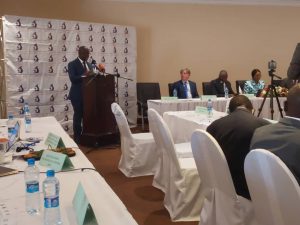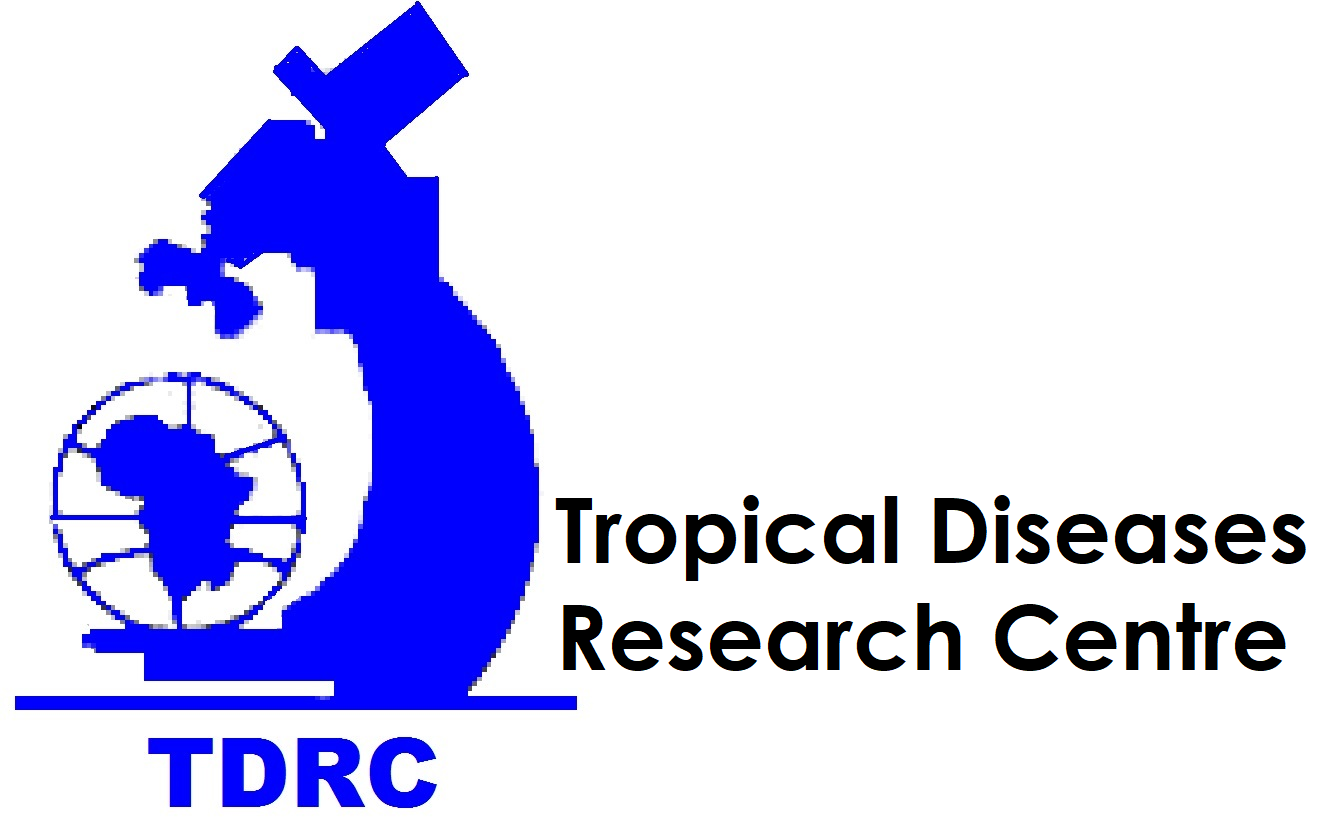TDRC Director Dr. Gershom Chongwe making a presentation during the Dissemination meeting
A study conducted by TDRC and its partners has revealed that Zambia is still at high risk of measles outbreaks despite the country’s vigorous immunisation programmes. The study has shown that only 82.8% of the Zambian population below the age of 50 years had immunity against measles, which is below the recommended threshold of 95% required to contain the disease.
The study’s main aim was to estimate age-specific measles and rubella seroprevalence at the provincial level in all 10 provinces of Zambia. To do this, the team used a nationally representative biorepository of blood samples collected as part of the Population HIV Impact Assessment (ZAMPHIA 2016) survey to generate seroprevalence estimates for measles and rubella at national and subnational level.
Sero-surveillance is the testing of blood samples to detect antibodies against a particular disease, which the body would have developed due to a past infection or vaccination. It can be used to investigate immunity gaps, such as age groups or spatial clusters of susceptible individuals who have not been vaccinated or previously exposed to disease.
The project aims to identify immunity gaps and guide targeted subnational strategies for vaccination. The partners of the project include the Ministry of Health, the Virology Laboratory at UTH and the Johns Hopkins Bloomberg School of Public Health.
The study’s findings were disseminated during a meeting for the Strengthening Immunisation Systems through SeroSurveillance (SSIS) project held in Lusaka, Zambia recently.
Heath Minister Hon. Sylvia Masebo officiated at the dissemination meeting hosted by TDRC, where she observed that the SISS project has provided critical information on the different methods that can be used to measure population immunity against vaccine preventable diseases. She added that the Ministry will include the testing of measles and rubella antibodies in a national wide survey known as the Zambia Demographic Health Survey, thanks to the critical data that the SSIS project has provided.
TDRC Director Dr. Gershom Chongwe thanked the partners that contributed to the study, and stated that TDRC will continue to conduct research on seroprevalence not only of measles and rubella, but other diseases as well in order to contribute to lowering the burden of disease in the country and the region.

Zambia still at high risk of measles outbreaks.
A study conducted by TDRC and its partners has revealed that Zambia is still at high risk of measles outbreaks despite the country’s vigorous immunisation programmes. The study has shown that only 82.8% of the Zambian population below the age of 50 years had immunity against measles, which is below the recommended threshold of 95% required to contain the disease.
The study’s main aim was to estimate age-specific measles and rubella seroprevalence at the provincial level in all 10 provinces of Zambia. To do this, the team used a nationally representative biorepository of blood samples collected as part of the Population HIV Impact Assessment (ZAMPHIA 2016) survey to generate seroprevalence estimates for measles and rubella at national and subnational level.
Sero-surveillance is the testing of blood samples to detect antibodies against a particular disease, which the body would have developed due to a past infection or vaccination. It can be used to investigate immunity gaps, such as age groups or spatial clusters of susceptible individuals who have not been vaccinated or previously exposed to disease.
The project aims to identify immunity gaps and guide targeted subnational strategies for vaccination. The partners of the project include the Ministry of Health, the Virology Laboratory at UTH and the Johns Hopkins Bloomberg School of Public Health.
The study’s findings were disseminated during a meeting for the Strengthening Immunisation Systems through SeroSurveillance (SSIS) project held in Lusaka, Zambia recently.
Heath Minister Hon. Sylvia Masebo officiated at the dissemination meeting hosted by TDRC, where she observed that the SISS project has provided critical information on the different methods that can be used to measure population immunity against vaccine preventable diseases. She added that the Ministry will include the testing of measles and rubella antibodies in a national wide survey known as the Zambia Demographic Health Survey, thanks to the critical data that the SSIS project has provided.
TDRC Director Dr. Gershom Chongwe thanked the partners that contributed to the study, and stated that TDRC will continue to conduct research on seroprevalence not only of measles and rubella, but other diseases as well in order to contribute to lowering the burden of disease in the country and the region.


